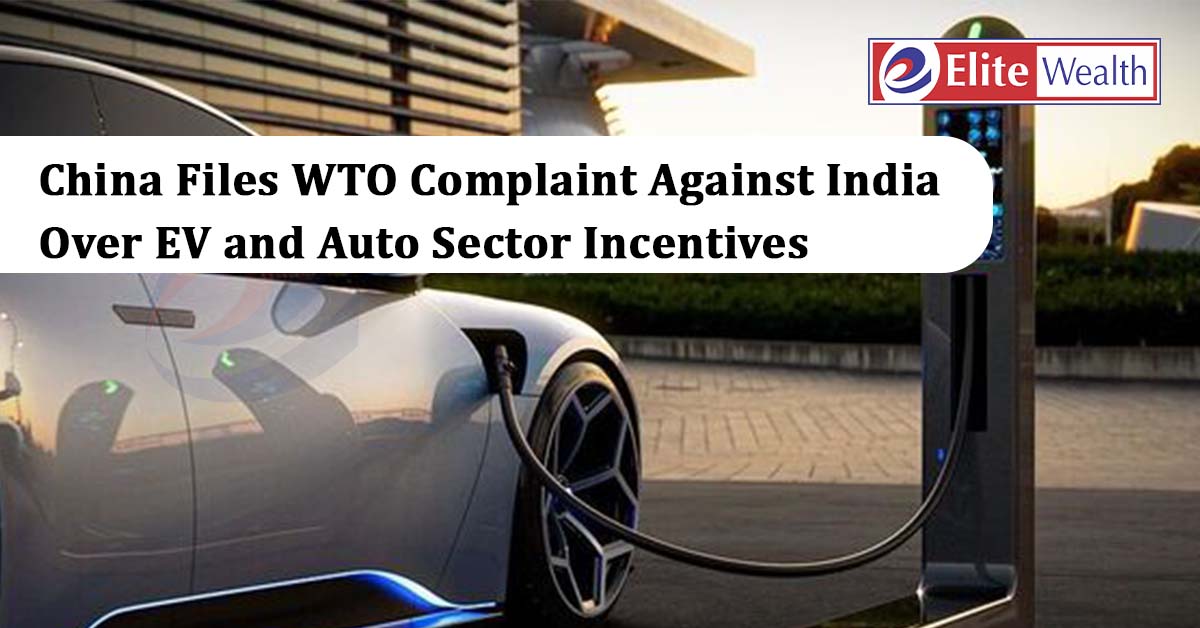
China has formally lodged a complaint at the World Trade Organization (WTO) challenging India’s Production Linked Incentive (PLI) schemes for the automobile and electric vehicle (EV) sectors. The dispute arises from China’s claim that India’s policies discriminate against Chinese imports and favour domestic production under various incentive frameworks.
Alleged WTO Rule Violations
In a communication dated October 20, 2025, China initiated consultations with India at the WTO, asserting that the PLI and EV promotion schemes violate international trade commitments under:
- The Subsidies and Countervailing Measures (SCM) Agreement,
- The General Agreement on Tariffs and Trade (GATT) 1994, and
- The Trade-Related Investment Measures (TRIMs) Agreement.
China claims that India ties incentives to the use of local components, giving an unfair advantage to domestic manufacturers and disadvantaging imports from China.
Targeted Indian Programmes
The WTO complaint focuses on three key initiatives:
- National Programme on Advanced Chemistry Cell (ACC) Battery Storage – ₹18,100 crore.
- PLI Scheme for Automobile and Auto Components – ₹25,938 crore.
- Policies encouraging domestic manufacturing of electric passenger cars.
These programmes are central to India’s strategy to reduce import dependence and develop a robust domestic EV ecosystem.
China’s Strategic Interest in India’s EV Market
The complaint coincides with China’s efforts to expand EV exports amid overcapacity and slowing domestic profits. Companies like BYD are increasingly targeting markets in Asia, including India.
China exported 2.01 million electric and plug-in hybrid vehicles in the first eight months of 2025—a 51% increase from 2024. With the EU imposing a 27% duty on Chinese EVs, access to India’s growing EV market has become strategically important for Chinese manufacturers.
Trade Impact and Bilateral Context
India’s trade with China remains heavily skewed. In FY 2024–25, India’s exports to China fell 14.5% to $14.25 billion, while imports rose 11.52% to $113.45 billion, widening the trade deficit to $99.2 billion.
The WTO complaint introduces a new point of contention in the already imbalanced trade relationship between India and China, with potential implications for policy, market access, and bilateral negotiations in the EV and auto sectors.
Summary
China’s WTO complaint challenges India’s EV and auto sector incentives, alleging discriminatory treatment of imports and preferential support for domestic manufacturing. The dispute underscores the growing strategic importance of India’s EV market and adds a new dimension to the complex trade dynamics between the two nations.
Disclaimer:
This article is intended solely for educational and informational purposes. The securities or companies mentioned are provided as examples and should not be considered as recommendations. Nothing contained herein constitutes personal financial advice or investment recommendations. Readers are advised to conduct their own research and consult a qualified financial advisor before making any investment decisions.
Investments in securities markets are subject to market risks. Please read all related documents carefully before investing.


